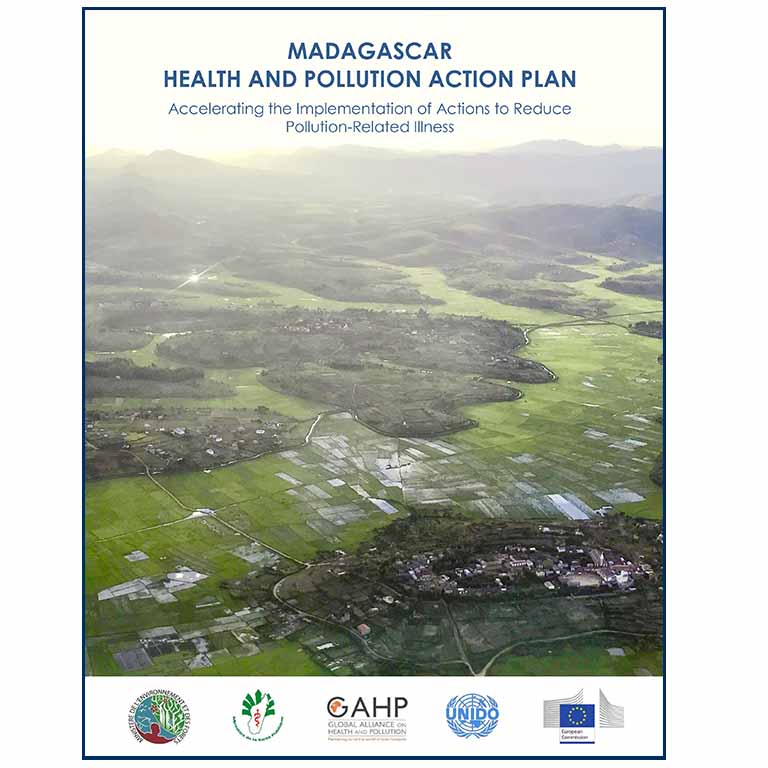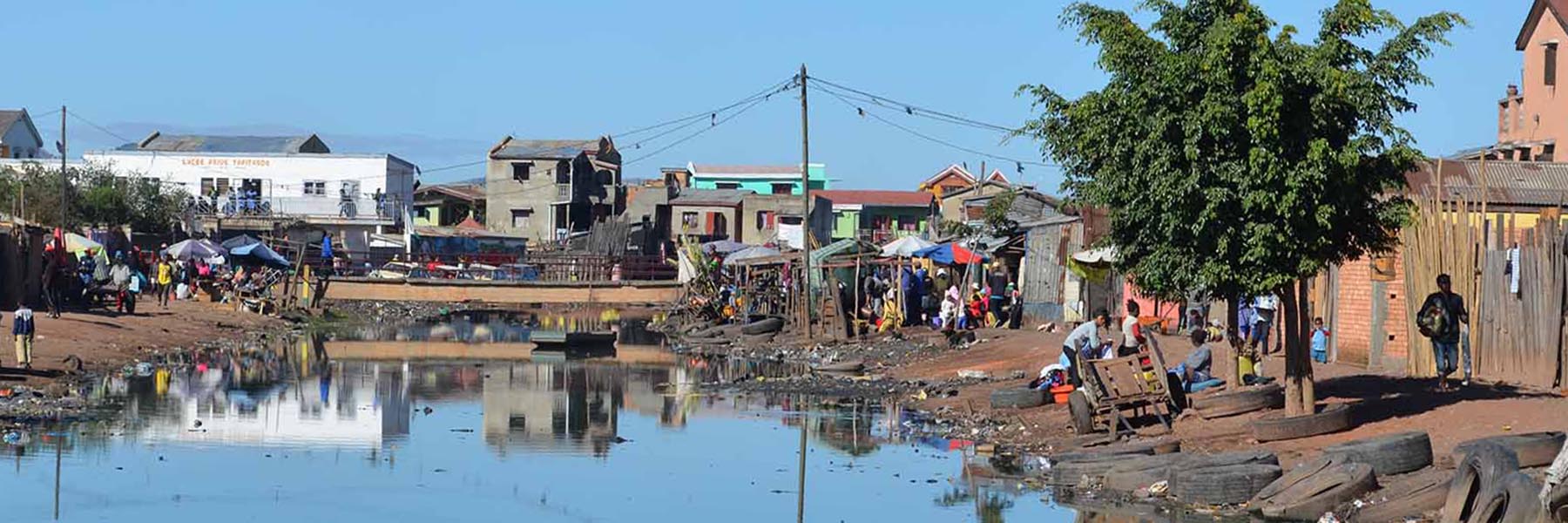In November 2018, Madagascar became the first country to complete a Health and Pollution Action Plan (HPAP). By request of the Malagasy people, the Global Alliance on Health and Pollution, part of the Solve Pollution Network, worked with nine government ministries to create this groundbreaking plan outlining steps to overcome the health crisis of pollution.
Madagascar’s Health and Pollution Action Plan

Alignment with President Rajoelina’s “Initiative Emergence Madagascar”
Madagascar President Andry Rajoelina has established a six-part initiative to promote long-term economic growth and improve the standard of living in Madagascar. Solve Pollution Madagascar aligns closely with this initiative, focusing on improving health, restoring natural resources, and creating the conditions for sustainable economic development.
This project will promote an end to dependence on diesel fuels. By setting up an outdoor air monitoring network and developing initiatives to support cleaner fleets of vehicles, particularly in Antananarivo, the Solve Pollution Network will support Madagascar in transitioning to lower-emission and electric-powered cars and buses. The project will also help identify opportunities for employing renewable energy such as solar power for electricity and cleaner and more efficient alternatives to charcoal cooking such as propane and ethanol.
This project will support responsible management of natural and human resources and sustainable economic development. By protecting the health of the Malagasy by reducing exposure to harmful pollution, this project will create a stronger and more resilient citizenry and workforce. By developing effective plans for deriving value from natural resources without depleting their long-term sustainability, the project will create the conditions for a green economy to flourish, helping businesses transition to practices that are both sustainable and profitable.
This project will support mining objectives by identifying risks associated with exposure to heavy metals and providing guidance on mitigating those risks. The project will also support biodiversity and associated tourism by providing effective alternatives to practices that lead to deforestation and contamination of natural resources.
This project will help ensure successful rice cultivation by mitigating a key risk experienced in many rice-producing countries: contamination by metals such as cadmium and arsenic. Project team members bring specialized expertise in preventing this type of contamination. Equally, the project will support expansion of agriculture through guidance on the responsible use of pesticides to prevent negative health effects for Malagasy agricultural workers and consumers.
This project can help attract foreign investment by ensuring a healthier workforce, a cleaner environment, and a more secure future through well designed and articulated plans for sustainable development.
As the members of the household primarily responsible for cooking in Madagascar, women will benefit from project initiatives focused on replacing charcoal with cleaner and more efficient cooking fuels. This change will improve the health of women and their children as well as freeing up more time to pursue work outside the home.
Leading the way
In addition to Madagascar, nine other countries have initiated Health and Pollution Action Plans (HPAPs). Dozens more, including India and Azerbaijan, have requested assistance from the Global Alliance on Health and Pollution to draft HPAPs.
By providing a model for success, Solve Pollution Madagascar will lead the way to even greater impact, starting with other countries undergoing the HPAP process, including Bangladesh, Colombia, Indonesia, Senegal, and Thailand.


